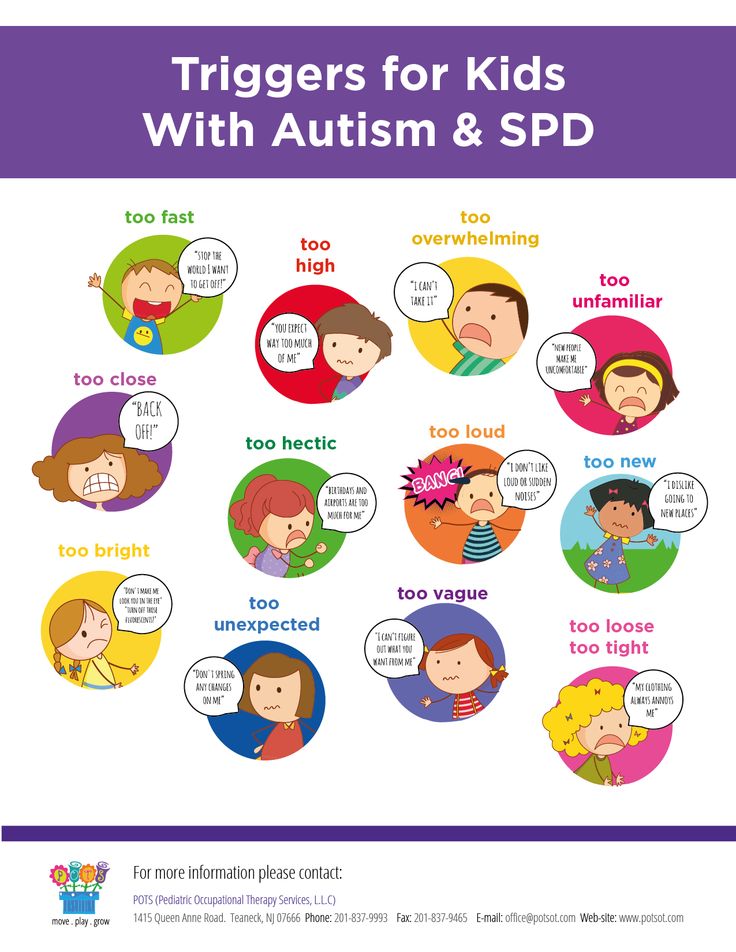Understand the Triggers for Kids with Autism Spectrum Disorder
29th January 2021

Each and every day, we face some situations or conditions that can cause us anxiety, isn’t it? Well, for someone with Autism Spectrum Disorder, some everyday situations can cause great anxiety. Of course, there are people who learn how to manage these situations well. However, for individuals with ASD, tension and anxiety can cripple them to many degrees. As a 21st century special educational needs teacher with autism courses for teachers, you need to understand those factors that trigger a child with an autism spectrum disorder.
Now you must be wondering what are some common triggers that people with ASD might experience?
Well, anxiety is a common co-occurring problem for children as well as youth with autism spectrum disorder (ASD). Understanding more about the factors triggering will help in developing and application of autism-related involvements for anxiety. If you recognize why autistic children behave in some firm ways, you can work out how to transform the behaviour and help children to manage it. Here is a summary of key themes being acknowledged by parents in relation to the triggers of children with ASD:
Sensory Problems
People with the autism spectrum disorder are generally hypersensitive to bright lights and loud sounds, they may find it very overwhelming. Other situations can also comprise of packed spaces and even certain smells too. Continuous contact to such prompts can affect the withdrawal or meltdown of the ASD child and sometimes they lose behavioural control. If a child is hypersensitive to bright lights then making changes to the setting may help. Like reducing the bright lighting, using blackout curtains, or providing sunglasses, and so on.
Amorphous Time
It’s just like there’s no specific schedule or routine on what to do in following. Numerous children enjoy this unstructured time as it gives them the freedom. However, these less organized parts of a school day can be predominantly problematic for autistic children. Also, individuals with ASD show repetitive behaviours. Therefore, maintaining a specific routine is so significant. Likewise, anything that is too overwhelming to their senses should also be sidestepped.

Anything unaccustomed or too new will confuse a child (especially the autistic child) and create a startling environment for him/her.
Societal Circumstances
People with autism frequently find social conditions problematic for a number of ins and outs. Certain social situations like large get-togethers or crowded spaces can increase anxiety even more. However, you can help them by practicing new societal assistances with an autistic child like how to concede and respond while meeting someone new. You can also work with parents of the child to ask about any specific social complications which they have noticed and work on improving those.
Well, the impact of anxiety can result in personal suffering in children, parents, along with siblings, some constraint of activities/opportunities and so on. Identification of precise triggers of anxiety in children with ASD can help educators with autism courses for teachers program in an immense way. Some more common triggers for children with autism are as follows:
- For an ASD child with nonverbal or with limited verbal skills, the frustration of not being able to communicate can set off anger or a breakdown.
- Too much information coming in too fast or from numerous different directions can be overwhelming for an ASD child.
- Children with autism can be penetrating to sensory stimulation.
- Internal issues like any food allergies or sensitivities, being hungry, tired, or thirsty and coordination problems.
(Reasons Kids w/ Autism Have Meltdowns | Autism)
Autism spectrum disorder is a medical condition connected to brain development. It impacts how a person observes and mixes with others, in social interaction as well as communication. The term "spectrum" in autism is basically referred to the extensive range of symptoms and severity. Autism spectrum disorder starts in early childhood and ultimately causes problems functioning in daily lives of the people. Well, there is no remedy for autism but an intensive and early treatment can make a big difference in the lives of many ASD children.
Well, this list is surely not comprehensive but these are the major areas to think about. The more teachers, parents and other caregivers become aware of a child’s triggers with autism courses for teachers, the more they can help the autistic child to cope.
Written By : Bindita Sinha

